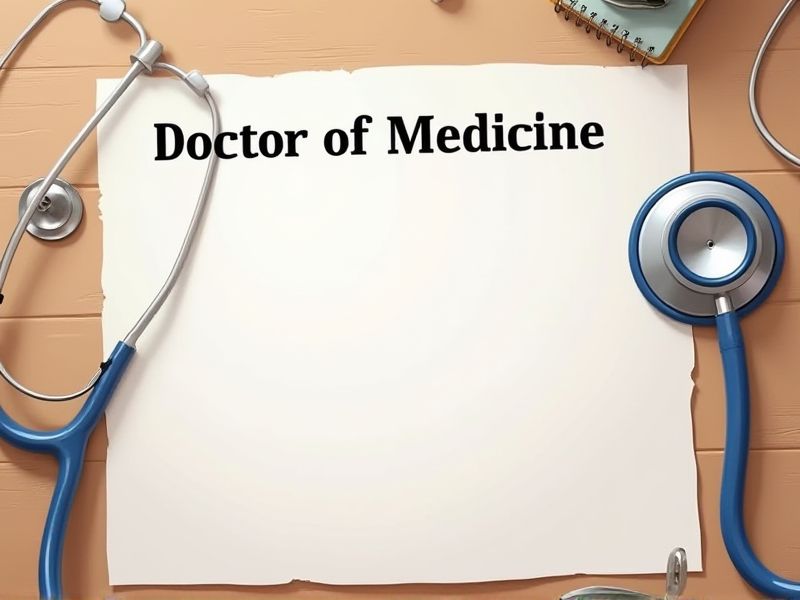
The practice of medicine requires not only a deep understanding of biological sciences but also specific certifications that ensure expertise and competence. Without certain certifications, medical professionals may lack the credibility and legal authority to carry out specific medical procedures or treatments. These certifications serve to reassure patients and healthcare systems regarding the practitioner's qualifications. Below are some essential certifications doctors may need to maintain their practice.
United States Medical Licensing Examination (USMLE)
The USMLE is needed for evaluating a physician's ability to apply medical knowledge and skills essential for delivering safe patient care. Its standardized testing format ensures consistent assessment across the country, fostering a uniform standard of competency. Passing the USMLE is a requirement for medical licensure in the United States, reflecting competency and readiness to practice medicine. It aligns medical education with practice expectations, promoting better preparedness among doctors entering the healthcare system.
American Board of Medical Specialties (ABMS) Certification
ABMS Certification plays a crucial role in verifying a physician's expertise and commitment to excellence. It establishes a benchmark for quality healthcare, ensuring doctors meet rigorous professional standards. This certification enhances patient trust, as individuals can confidently choose a certified physician. It encourages lifelong learning and continuous improvement in medical practices.
Advanced Cardiovascular Life Support (ACLS)
Advanced Cardiovascular Life Support (ACLS) provides doctors with the crucial skills and protocols needed to respond effectively to cardiac emergencies, enhancing patient survival rates. ACLS training encompasses understanding arrhythmia recognition and pharmacology, equipping doctors to make informed decisions during critical events. Mastery in ACLS promotes standardized care across medical teams, ensuring cohesive and efficient responses in high-pressure situations. Continuous updates in ACLS guidelines ensure doctors are equipped with the latest practices and technologies, crucial for modern medical care.
Basic Life Support (BLS)
Basic Life Support (BLS) equips doctors with critical skills to maintain blood circulation and breathing in emergency situations, preventing brain damage until advanced care arrives. Doctors often encounter life-threatening situations where immediate BLS intervention can significantly enhance patient survival rates. Acquiring BLS training ensures doctors are prepared to efficiently manage cardiac arrests, choking, and other acute emergencies. Competency in BLS reinforces a doctor's readiness to offer care under predictably unpredictable circumstances.
Pediatric Advanced Life Support (PALS)
Pediatric Advanced Life Support (PALS) training equips doctors with critical skills to effectively manage emergencies in young patients, which significantly increases survival rates in pediatric emergencies. Doctors with PALS certification can quickly assess and respond to acute conditions, minimizing potential long-term health impacts on children. The systematic approach of PALS protocols promotes consistent and high-quality care, enhancing patient outcomes in high-stress environments. In a healthcare landscape with diverse patient needs, PALS provides a comprehensive understanding of child-specific physiological and anatomical distinctions crucial for effective medical intervention.
Advanced Trauma Life Support (ATLS)
Advanced Trauma Life Support (ATLS) provides a standardized approach that equips physicians with critical skills for rapid assessment and management of trauma patients. Consistent training through ATLS reduces mortality rates by ensuring medical professionals can efficiently prioritize life-threatening conditions. Evidence shows that structured protocols from ATLS streamline emergency care, minimizing errors during high-stress scenarios. The program also facilitates communication among multidisciplinary teams, enhancing coordinated efforts in trauma situations.
Critical Care Medicine Certification
Certification in Critical Care Medicine is essential for a Doctor of Medicine because it validates specialized knowledge necessary for managing critically ill patients. It ensures that doctors possess advanced skills in life-support and monitoring technologies. This certification often leads to greater employment opportunities in high-demand hospital units. Employers and patients tend to trust certified professionals more, which can enhance a doctor's credibility and career prospects.
Infection Control Certification (CIC)
The increasing complexity of infectious diseases has heightened the need for doctors to be proficient in advanced infection control techniques, which is facilitated by a CIC. Healthcare-associated infections can significantly impact patient outcomes, and CIC training empowers doctors to implement effective prevention strategies. Regulatory bodies are increasingly requiring stringent infection control measures, and holding a CIC indicates compliance with these enhancing standards. Continuous advancements in medical practices necessitate that doctors stay updated, and the CIC provides a structured pathway for consistent professional development in infection prevention.
Clinical Research Certification
Clinical research certification equips a Doctor of Medicine with the necessary skills to design and conduct medical trials, which leads to more effective and evidence-based treatments. Understanding regulatory standards and ethical guidelines ensures that patient safety is prioritized in any study. Certified physicians often have better career opportunities as institutions seek qualified professionals to lead research initiatives. The certification demonstrates a commitment to continual learning, which is vital in the rapidly evolving field of medicine.
Pain Management Certification
Pain management certification enhances a doctor's ability to effectively diagnose and treat different types of pain, improving patient outcomes. This certification signals a commitment to specialized education, which can result in better pain management strategies based on the latest research and evidence. Many healthcare institutions prefer or require certified professionals for pain management roles, influencing hiring decisions. Insurance companies often mandate such certifications to validate expertise and ensure quality patient care, impacting reimbursement processes.
Summary
When you, as a Doctor of Medicine, acquire additional certifications, your professional credibility typically increases. Certifiable skills tend to enhance patient trust and satisfaction, leading to potential growth in your practice. You may also gain access to specialized job opportunities, possibly resulting in increased income. Furthermore, these certifications often provide a competitive edge in your field.
